Video
youtube
Come see Corey Wolf aka CryWolffs! Violin at Kollaboration San Francisco's Artist Showcase.
Artist Showcase
October 10, 2015
Marines' Memorial Theatre
609 Sutter St, San Francisco, CA 94102
More Info/Tickets: http://kollaborationsf.org/showcase/
#KollabSF6
CryWolffs!
youtube.com/CryWolffsViolin
crywolffs.wix.com/crywolffs
twitter.com/CryWolffsViolin
soundcloud.com/crywolffs
Kollaboration San Francisco
https://www.facebook.com/kollab.sf
https://www.twitter.com/kollabsf
https://www.kollaborationsf.org!
1 note
·
View note
Link
Kollaboration San Francisco’s Artist Showcase hosted by Ashly Perez!
#showcase#event#concert#kollaboration#ashly perez#san francisco#bay area#entertianment#api#asian#asian american#th delivery#anak#&blue#melvin sings#sanfran6#CryWolffs Violin
3 notes
·
View notes
Video
youtube
What do you think when you hear the phrase “fusion food?” Check out Brennan and Delena as they get into some of their culinary pet peeves, and be sure to share yours with us!
Follow us on fb twitter and wordpress!
#kollaboration#kollaboration sf#kollab#kollabsf#vlog#food#fusion#asian american#apa#api#aapi#asam#b&d talk#asian
3 notes
·
View notes
Link
If you haven’t seen our series on life after college, you need to now! We all know the struggles of job searching, relationships, and, well, living, but come rant and rave with us!
2 notes
·
View notes
Link
See our profile series finale on our official blog!
#apa#apahm#api#asian american#asian heritage month#kollaboration#kollaboration sf#kollab#kollab sf#kollabsf apahm#hopie spitshard#lyrics born#ruby ibarra#rap#hip-hop#music#apia
0 notes
Text
Jeannie Mai: Realest of “The Real”
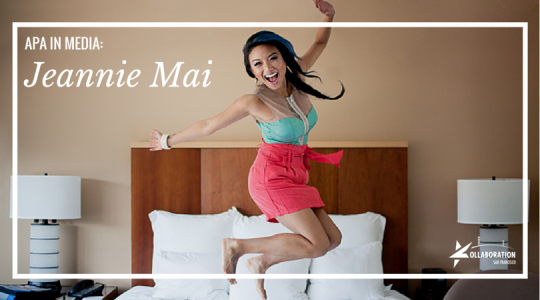
By Delena Truong
(Editor’s Note: This is the seventh installment of Kollaboration SF’s Asian-Pacific American Heritage Month series on prominent APA figures in media. Follow us on Wordpress and FB, and check in every week of May for new profiles and features!)
Some may know her as a bold fashionista, loud TV personality, a proud Bay Area homie, or not know her at all. When I discovered Jeannie Mai a couple of years ago, I was inspired. I met someone who I hope to be: an Asian American woman in the media, known not for acting or singing, but for doing what she loves. Jeannie is currently a co-host of a daytime television show, The Real. She is one member of a diverse group of women just keeping it "real" for their national audience. On the show, she is known as the fashionista, who constantly represents her culture and her hometown: San Jose. What? She's from the Bay Area?! Yes, born and raised, and hella proud.
This is how she became who she is now:
Jeannie started, as many other makeup artists do, at MAC Cosmetics, and soon worked her way up to beautifying celebrities like Christina Aguilera and Alicia Keys. Before the time of "make up gurus" and YouTube, this is where makeup artists wanted to be. How did she go from behind the scenes to in front of the camera? Simple, she auditioned. She became a TV personality doing local and national hosting gigs, like at E!, Lifetime, MTV and NBC. But where I discovered her was on the Style Network's Emmy-nominated show, How Do I Look. Then, like everyone else did, I saw her everywhere. She was recognized for her bold style, blue hair and her coined terms – “wearapy” and “mai” (instead of "my").
youtube
In 2013, Jeannie became a co-host of The Real. I was pretty damn excited. Yes, she is not the first Asian American daytime host. But she is someone I can relate to - someone who made me believe that I can be up there. She didn't get there with her acting skills, or a degree in journalism, but with her personality. One thing I would have to say is that on the show there are times where she is "trying" (insulting) someone or is the only person who agrees with her own "have you ever" questions. Sometimes, you may wonder why she is talking so loud or why she’s even talking; I for sure think that at least once a week.
It has been said that she doesn’t belong on the show. However, isn’t that the point of The Real? Featuring real people, with real stories and personalities and engaging in real conversations. She encourages individuality and having your own voice. Jeannie is not afraid to be herself and she stands behind what she says, no matter who disagrees with her - in front of all of America.
"I’ve realized that I have a lot in common with the average woman out there: I want to dream, I want to live life with purpose, and I want to look damn good doing it." - Jeannie Mai
Delena Truong is currently the Marketing Director of Kollaboration San Francisco. She was born and raised in Oakland, and loves everything related to marketing and social media. Follow her on any platform - @delenakim
#apa#asian american#apahm#asian pacific american#asian pacific american heritage month#jeannie mai#the real#api#kollaboration#kollaboration sf#kollab#kollab sf#kollabsf#kollabsf apahm
1 note
·
View note
Text
Buyer’s Remorse: The Eddie Huang Edition. [Eddie Huang, part 2]

By Brennan Lowe
(Editor’s Note: This is the second of two opinion pieces by our staff writers on Eddie Huang. Together they compose the fifth installment of Kollaboration SF’s Asian-Pacific American Heritage Month series on prominent APA figures in media. Follow us on WordPress and FB, and check in every week of May for new profiles and features!)
“I didn’t know Eddie Huang was such a douchebag!” I heard countless APIs sigh upon witnessing the Chinkstronaut’s auto-defenestration on Twitter a few weeks ago. You could feel the anger simmering beneath the surface of shocked reactions; how can he call black feminists “bums” while sliding in and out of AAVE (“African American Vernacular English”)? How can he personally attack critics while simultaneously trashing his own ABC sitcom? “Buyer’s remorse” could explain the latter. Fresh Off The Boat is an unsurprisingly sanitized adaptation of Huang’s memoir and life, devoid of issues he considers integral to his life’s development (read: his father’s abuse of his mother and children), and Huang has immediately and outwardly regretted his decision to sell his story to television, often in destructive ways. Now, Eddie Huang’s case may be extreme, but I don’t think he’s the only buyer feeling some remorse here. Yup, I’m looking at you, national API community, loyal-to-a-fault fans of the first Asian American network show in decades. Your new generation poster boy isn’t the loveable character you’ve been watching on Tuesday nights.
I’ve got one question for you, and it’s the same one I’d ask Eddie: what did you expect?
I’ll say it: I feel bad for Eddie Huang, if only because he has become the whipping boy of Asian America by virtue of his having any visibility whatsoever in the American mainstream. He’s a flawed human being and should be dealt with as such, but I can’t help but think that the endless hopes and dreams of an entire people that were pinned (arguably unfairly) on him when FOB began have played a large role in his current mode of self-destruction. His attitudes toward women, black or not, aren’t new things; scroll back through the years on his twitter, or better yet, actually read his memoir, and you’d know his engagement with sexism runs much deeper than what’s being written about him now. It’s a shame, because I don’t think larger audiences, API and other, weren’t aware of who he is, and now that he has the opportunity and platform to be a dumbass on a larger scale people are being shocked into some sort of revelation about his unsavory tendencies. He’s ALWAYS been a misogynistic hip-hop “appropriating” (I use quotes because there’s many ways you can interpret the connotations of a term like that) SOB. He is virtually objectively morally in the wrong, but in a twisted way, I respect that he has always been transparent in who he is, or at least who he presents himself to be. Is it his fault that the masses didn’t realize this until now?
In case it wasn’t already clear: this is not a defense of Eddie Huang or his personality. When reading Fresh Off The Boat well before the show had materialized, I was extremely put off by Huang’s passing references to “bitches” or suggestions of sexual entitlement, especially when juxtaposed (and interspersed, even!) with his remarkably sharp insight into the intersections of food and race. I’m not cool with that, and I experienced the same gag reflex then as many APIs have in recent days. It would be easy to dismiss him from the pantheon of “APIs worth paying attention to” on these merits alone, but here is where I ask that you consider just how complicated his sexism is. Sure, you blame the individual for holding those views, but where does the individual get them from? Sure, you blame either/both white masculinity or/and black hip-hop culture, but where does that leave people not within the black-white binary that controls American popular culture? Of course it’s on us (primarily meaning API men) now to forge an ideal of masculinity without being racist, sexist dickholes, but for a child growing up in a time when that concept wasn’t even a concept, what recourse does he have? And if you answer, “Eddie should have blazed that trail as a kid,” then you must have forgotten how our formative years develop. Eddie Huang is who he is, and while it’s probably too late and not worth the effort to somehow reverse that, it’s okay. All efforts should be dedicated to the future, so that younger generations of APIs truly have a model to base their own conceptions of masculinity off of.
So what do you do with Eddie Huang now? While I’ve read plenty of views that are eager to excommunicate him from the API community (and yeah, I do feel some religious cult-like vibes coming from people on this), I’d like to be more constructive in moving forward. There is a middle ground in between blindly championing him and burning him at the stake, and for the sake of advancing a people in the national discourse, that middle ground needs to be taken. Be as measured in your praise of him as you are in your criticisms; he deserves no better or worse from the community he for better or worse represents. It’s clear he didn’t expect or was ready for the weight of so many people on his shoulders- even if he says otherwise on television interviews, and it’s clear that he’s not the ideal “face” of Asian America, but until we are at the point when we have the diverse and varied “faces” to properly represent ourselves, we have to do the best we can with what we’ve got. So, to those of you down in the dumps over a certain “Based FOB,” shake off your buyer’s remorse, enjoy Fresh Off The Boat when it returns next season, work with and around its flawed human source, and help the rest of us build what we want to see.
Brennan kind of misses eating at Baohaus and swapping Fabolous punchlines with the staff there. | @flawanddisorder
#Asian American#Asian Pacific American#APAHM#Asian Pacific American Heritage Month#Eddie Huang#Fresh Off The Boat#sexism#misogyny#Kollaboration#Kollaboration SF#KollabSF#APA#API#APIA
46 notes
·
View notes
Text
Tact: It Doesn’t Cost a Damn Thing. [Eddie Huang, part 1]
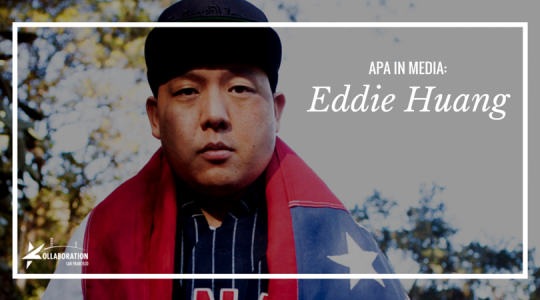
By Zihao Huang
(Editor’s Note: This is the first of two opinion pieces by our staff writers on Eddie Huang. Together they compose the fifth installment of Kollaboration SF’s Asian-Pacific American Heritage Month series on prominent APA figures in media. Follow us on WordPress and FB, and check in every week of May for new profiles and features!)
When I first heard about Eddie Huang and his life struggles about how he overcame many silenced struggles in the Asian American community, I was proud of him for giving a voice to those who have long stood voiceless. When he broke out in stardom, I was genuinely hella excited for him and hoped to keep seeing him succeed. His public image since has been controversial, to say the least. With that much public exposure its inevitable that you become a figurehead of the Asian American community, whether you want to admit this unfair reality or not. And in carrying this torch Eddie Huang has blazed trails, but also aired out longstanding bullshit within East Asian communities.
On April 24, 2015 Eddie Huang went on Bill Maher’s talk show to talk about his show—where he talked about the statistic undesirable nature of Asian men and Black women in a way that led to a twitter storm of racially charged arguments. I get it— you’re trying to bring up Asian Americans by being loud and not your run-of-the-mill silent Miss Swan—but do it with some tact, not behind tacky fragile masculinity that needs to hide behind mysoginistic, racist jabs that paints an entire community criminal. Too often in East Asian communities do people choose to keep the peace and harmony and prosperity (becawz-is-good-4-u) rather than stir trouble. I applaud Eddie Huang for inspiring a different trend, and student has mastered teacher’s tricks so I’m gunna have to call your ass out on this one.
Eddie went on to clarify his meaning behind his statement—which was fine—but then preceded to mock and attack Black women questioning him on twitter. W-H-Y? Especially on social media, humility takes you far and admitting your wrongs. What is needed is to create connections among communities rather than burning it all down to the ground. In a word I am disappointed. Disappointed because of the potential and the work Eddie Huang has done and is doing in shedding light on real cultural, generational, social class challenges that Asian Americans face with his exposure. But hold the fuck up, when did bringing up our own communities ever have to entail bringing other communities down? Especially African-Americans and women, who have their own struggles. Eddie Huang is a champ hustler, but this one…you picked the wrong battle, period.
If you’ve read his memoir, eaten at his restaurant(s), watched his show—you would know that Eddie Huang is who he is because of the bullshit he’s had to overcome. Impulsive, expressive, resourceful, hardeheaded, determined. But nothing excuses typing in caps throwing a tantrum like a manchild against grown-ass women on Twitter. It highlights the anti-blackness in API communities, and the need for bridges between fellow communities of color. It highlights the fact that somebody needs to grow up and act their age, not their sneaker size.
Rebuttal from @JustCallMeKiku “(Bravo chef & self-described Blasian)”

Zihao is a writer, screenplay enthusiast, and unapologetic glutton for good books & films. [email protected]
#Asian American#Asian Pacific American#APA#APAHM#Asian Pacific American Heritage Month#Eddie Huang#fresh off the boat#Kollaboration#Kollaboration SF#KollabSF#API#sexism#misogyny#race
0 notes
Text
Starring Margaret Cho, as Herself

By Zihao Huang
(Editor’s Note: This is the fourth installment of Kollaboration SF’s Asian-Pacific American Heritage Month series on prominent APA figures in media. Follow us on Tumblr and FB, and check in every week of May for new profiles and features!)
Margaret Cho is one of the boldest, most controversial, badass Korean entertainers out there. How many Asian American icons out there defy every known stereotype? And of those, how many make a living being completely true to who they are? Besides being a comedian, author, a singer-songwriter, an LGBTQ activist, an ex-BDSM enthusiast, a Bear-lover, an actress, a tattoo connoisseur, and host for her show celebrating female sexuality--Cho is also every Asian American parents’ worst nightmare.
On the bright side, Cho is a role model for newer generations of Asian Americans that many people didn’t have growing. A role model not in the sense of the sex-drugs-and-rock-and-roll, but through the way Cho lives her life unapologetically true to herself, while not compromising the many facets of her identity and upbringing. Margaret Cho grew up among "old hippies, ex-druggies, burn-outs from the '60s, drag queens, Chinese people, and Koreans” in San Francisco, where her parents ran Paperback Traffic on Polk Street and California Street. As a local-bred legend, Cho has built herself into a legend that crosses international borders (kinda like Anna May wong but with hella more drugs and sex and self-acceptance).
Cho made her first TV appearance at a time when there were no major Asian-American role models in mainstream media; in the show All-American Girl, Cho felt pressure to starve herself, to make herself more Asian, to make herself less Asian, to basically do the impossible and satisfy everyone’s expectations. As a result, Cho struggled with substance abuse and addiction along with self-image issues, which she later turned into moneymaking material for her comedy routines. In her comedy she puts extra emphasis on the message of loving every part of you, as you are—after having struggled personally with these issues. In the face of society’s ridiculous expectations as a queer woman of color (and so much more), Margaret Cho has essentially laughed off her haters and decided instead to live as authentically as possible. Cho has done what early predecessors like Anna May Wong could not, and I believe that her work will continue to inspire people—especially those who don’t fit into society’s cookie-cutter molds—for ages to come.
Zihao is a writer, screenplay enthusiast, and unapologetic glutton for good books & films. [email protected]
#Asian American#APA#API#APAHM#APAHM2015#Asian Heritage Month#Asian Pacific American Heritage Month#Asian Pacific American#Kollaboration#Kollaboration SF#KollabSF#Kollab#Margaret Cho#APIA
2 notes
·
View notes
Text
Yellow Pearl: Tupac Loved Them. So Should You.
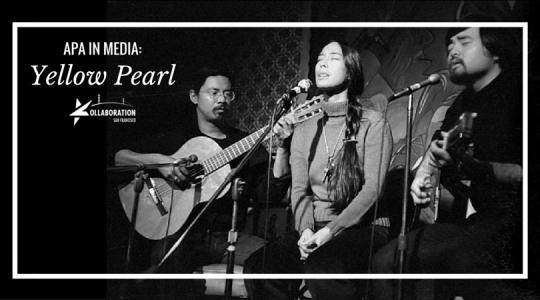
By Brennan Lowe
(Editor’s Note: This is the third installment of Kollaboration SF’s Asian-Pacific American Heritage Month series on prominent APA figures in media. Follow us on Tumblr and FB, and check in every week of May for new profiles and features!)
When you think of classic folk singers, names like Bob Dylan, Pete Seeger, and Joni Mitchell immediately come to mind, each of them outspoken voices on war, peace, and environmental and social unrest in the 1960s and ‘70s. Or at least, they come to mind for a large segment of the American population, but if you’re like me and had to Wikipedia some of them to make sure that, yes, these people are indeed considered folk singers, you’re probably thinking Asian Americans were left out of this musical movement. After all, the term “Asian American” hadn’t even been coined yet when Dylan’s iconic “Blowin’ in the Wind” came out in 1962, so how could there be APA folk music at all? The answer, my friend, is Yellow Pearl.
In 1973, Chris Ijima, Joanne Miyamoto, and William “Charlie” Chin banded together in New York to record what is considered the first Asian American album, titled A Grain of Sand: Music for the Struggle by Asians in America. With such a vague title, you might be wondering with what purpose the trio of activist musicians created this record. Take a listen to their track, “We are the Children,” and try to unpack their lyrical subtlety (or rather, their lack thereof).
youtube
Yellow Pearl served as the voices of the budding Asian American Movement, and there’s good reason why their sole musical output is to this day remembered fondly by students and activists of the time. Ijima, Miyamoto, and Chin helped unite a people through expressing shared experiences of struggle, discrimination, and searching for identity in America, where Asians were not even a decade removed from being classified in the Census as merely “Other.” Groups that had been separated by countries of origin, language, and physical distance in the US were now empowering themselves through forging solidarity with one another, and A Grain of Sand cannot be overlooked in its role in helping shape that solidarity. Yellow Pearl’s messages and form weren’t limited to those specifically pertaining to Asian Americans, either, as they drew musical influence from the entire Third World political movement. Listen to “Somos Asiaticos” (“We are Asians”), the product of collaborating with Puerto Rican artists Flora y Pepe, or “Free The Land,” written for the Malcolm X-inspired Republic of New Africa. As Miyamoto would later recall, living in this time “was like jumping into the pool of revolution…. Every day there was organizing going on at many different levels. It was powerful. You see something wrong, you have an idea how to fix it, you put it into practice.” And so she and Ijima and Chin did in recording A Grain of Sand, and the rest is history.
Listen: A Grain of Sand is on Spotify. You have no excuse for not listening to it.
Read More: Smithsonian Folkways Magazine wrote an AMAZING in-depth feature on Yellow Pearl, which includes how the greatest rapper of all time grew up listening to A Grain of Sand.
Brennan grew up on Motown and old school R&B, which explains and/or justifies his willful ignorance of folk music. Hit him up on twitter @flawanddisorder.
#Asian American#APAHM#Asian History Month#API#APA#APIA#music#yellow pearl#a grain of sand#folk music#Asian Pacific American History Month#Kollaboration#kollaboration sf#kollabsf
4 notes
·
View notes
Text
The K-Pop Invasian That Could Have Been: The Kim Sisters
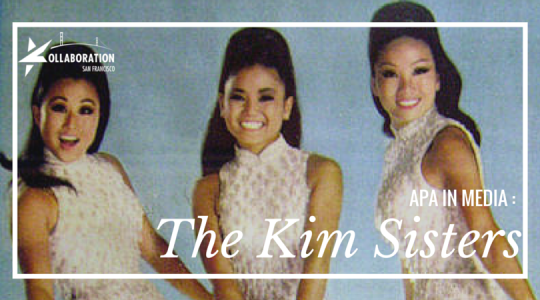
youtube
By Brennan Lowe
(Editor’s Note: This is the second installment of Kollaboration SF’s Asian-Pacific American Heritage Month series on prominent APA figures in media. Check in with us every week in May for new profiles and features!)
What if I told you that the biggest K-Pop success ever seen in America happened some fifty years ago? That, in the 1960s, a family trio of female Korean singers and musicians enjoyed a longer period of sustained public visibility in the US than BoA, Rain, Se7en, the Wonder Girls, SNSD, and “Gangnam Style” did combined? (This is without the help of Twitter and YouTube, may I remind you, so feel free to leave your “but global online followings!” argument at the door.) Don’t believe me? Watch the above video and say hello to The Kim Sisters.
Long before PSY galloped in and out of the American cultural conscience, and long before Nickelodeon decided to jump on the Hallyu wave by doing, well, whatever Make It Pop is, The Kim Sisters enjoyed a period of unmatched success in this country through playing the primetime variety show circuit. As regular performers on the ubiquitous The Ed Sullivan Show and its West Coast counterpart Hollywood Palace, sisters Sook-ja and Ai-ja and cousin Min-ja seemed poised to lead the way for other Asian and Asian American musical acts to find national visibility. Allow me to give some context for their achievements, since today’s television programming culture has all but done away with shows like Ed Sullivan. Their feats are the rough equivalent of 2NE1 performing at every awards show while also being featured every week on SNL. That’s how integral variety shows were to the American public in those days, and that’s how often that same public tuned in to see a Kim Sisters performance. Singing both American and Korean standards while boasting the ability to play twenty (count em!) instruments, The Kim Sisters very well could have been made legends in the entertainment world. They could have ushered in a golden era of Asian performers in America and I wouldn’t have had to write this piece, but that golden era never materialized, and I’m writing this while anxiously waiting for the likes of CL and Aziatix to make even the slightest splash in the US music scene.
So what happened? How could the trails these women blazed be left so untraveled? One obvious answer lies in the time of The Kim Sisters’ ascent. As referred to by Min-ja in a recent interview, their timing was perfect, for few to no other Asian acts had the ability or opportunities to gain traction in the US. The Kims were aided tremendously by their relationship with Ed Sullivan himself, and it’s arguable that they may have never breached the American public eye without this connection. Another reason may be in the fact that, though The Kim Sisters rose quickly to prominence after their American debut in 1959, their careers simply did not last long enough to leave a strong legacy for future generations of would-be stars. When the trio promptly each got married in 1967, The Kim Sisters immediately and permanently disbanded, content with family life. There were no comebacks, no reunion tours, and no solo careers to blossom in suit. All that remains of The Kim Sisters’ legacy are a smattering of YouTube videos and bunches of viewers wondering why they hadn’t heard of them before. It seems almost unimaginable that an Asian act could reach the same consistent heights that The Kim Sisters did in today’s world, let alone that of a half-century ago, but it happened. Let’s hope it doesn’t take another fifty years for it to again.
Brennan is an incoming 1L at the UC Irvine School of Law. If you’re reading this Steph Curry is the MVP. Send hate mail to [email protected] or talk trash on twitter @flawanddisorder.
#asian american#APA heritage month#apa#AAPI#asian heritage month#kpop#kim sisters#kollaboration#kollaboration sf#KollaborationSF
57 notes
·
View notes
Text
Anna May Wong: Mother of the Diasporic Struggle

By Zihao Huang
(Editor’s Note: This is the first installment of Kollaboration SF’s Asian-Pacific American Heritage Month series on prominent APA figures in media. Check in with us every week in May for new profiles and features!)
Anna May Wong was born a second-generation Chinese American of Taishan Cantonese descent in Los Angeles in 1905, eventually becoming the first Chinese American movie star actress at the age 19. As a trailblazer for future generations of performers of color, Anna May Wong dealt face-first with discrimination in her career--discrimination based not only on her race (search keyword: anti-miscegenation laws) but also her gender (search keywords: Academy nominations for women of color). Despite these hurdles as a woman of color in twentieth century film, her filmography grew to span over 60 films that transcended international borders, landing her a spot in the Hollywood Walk of Fame in 1960.
Later on in her career Anna May Wong would speak outwardly against the villainous, stereotypical Asian female roles she grew exhausted of playing. Her aversion against the beginnings of modern-day stereotypes of Asian Americans made Daughter of the Dragon (1931) her last treacherous role (also important to note, her co-star Japanese-American actor and Academy nominated Sessue Hayakawa was paid $10,000, while Anna May Wong was compensated $6,000.) Her activism and sacrifices to push Asian American identity in entertainment tried to paint a human picture of Asian Americans in a time when stereotypes and prejudice prevailed.
Both American and Chinese communities relentlessly critiqued her work. Upon returning from her pilgrimage to China; Anna May Wong commented “It's a pretty sad situation to be rejected by Chinese because I'm 'too American' and by American producers because they prefer other races to act Chinese parts.” Anna May Wong’s strength in dealing with cross-cultural diasporic trauma-- at a time when there was nobody else like herself -- has continued to grow into expanding legacies of Asian American actresses who continue to push the boundaries of representation by those such as Lucy Liu, Maggie Q, Constance Wu, Margaret Cho, Asa Akira, Mindy Kaling, and many more.
A sidenote: The “Gateway to Hollywood” in Los Angeles, at the crossroads of Hollywood Boulevard and La Brea Ave emblemize Anna May Wong, Dolores del Río, Dorothy Dandridge and Mae West into sculptures to memorialize these actresses of color who have contributed their lifework to changing media representation.
Zihao is a writer, screenplay enthusiast, and unapologetic glutton for good books & films. [email protected]
#asian american#apa#apia#APA heritage month#kollaboration#kollaboration sf#KollaborationSF#AAPI#anna may wong
3 notes
·
View notes
Link
Detailed information regarding all available staff positions are listed here: http://goo.gl/Emj8w0. Please be as concise as possible when filling out this application.
"Kollaboration is an official non-profit organization, annual talent showcase, and grassroots movement to disrupt the status quo of mainstream media."
If that sounds like your cup of tea, you're in for some good news! It's a new year, which means we're looking for new faces to join our Kollaboration SF team! Send in an application if you're interested in adding something special to your repertoire this year.
Applications are due on January 20th at 11:59PM. You will be contacted with further steps following the deadline. We look forward to your applications! Thank you!
7 notes
·
View notes
Link
LESS THAN ONE HOUR TO VOTE FOR DRC BEATBOX!! Submit your votes now!
#KollabSF5#kollaboration#san francisco#bay area#AAPI#DRC Beatbox#community#vote#star#LA#2014#showcase#talent#music#beatbox#youtube#facebook#empowerment through entertainment
0 notes
Text
Five Reasons to Vote for DRC Beatbox
Have you voted for DRC Beatbox for Kollaboration Star? If not, here are five reasons why you should vote for him:
1. Have you seen him perform?

2. Just watch his performance and YouTube videos… https://www.youtube.com/watch?v=io60ZH6tJJA

3. Support a talented local artist!

4. This is the first beat boxer in SF history to have won. Let's get him to LA for Kollaboration Star!

5. And it's SO easy to vote. It really takes two clicks.
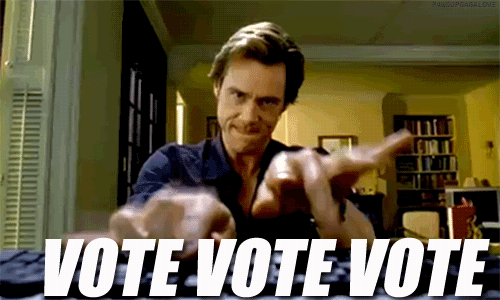
Tomorrow is the last day to vote, and remember that you can vote once a day! http://bit.ly/KollabStar2014Vote
#DRC Beatbox#KollabSF5#KollaborationSF#KollaborationStar#empowerment through entertainment#AAPI#bay area#san francisco
0 notes
Link
Have you voted for DRC Beatbox today? If you haven't, please take the time to do so! He needs as many votes as possible to move on to Kollaboration Star. Don't forget that you can vote once every day until the voting process is done! Thanks for the support!
#KollaborationSF#KollabSF5#DRC Beatbox#san francisco#bay area#AAPI#vote#star#empowerment through entertainment
0 notes
Link
Have you voted for DRC Beatbox yet? Make sure to vote for him once a day until the 14th, so that he can get to Kollaboration Star, which will be held on November 15th at the WIlshir Ebell Theatre!
San Francisco represent!
#DRC Beatbox#kollaboration#sf#san francisco#bay area#kollaborationstar#vote#empowerment through entertainment
0 notes